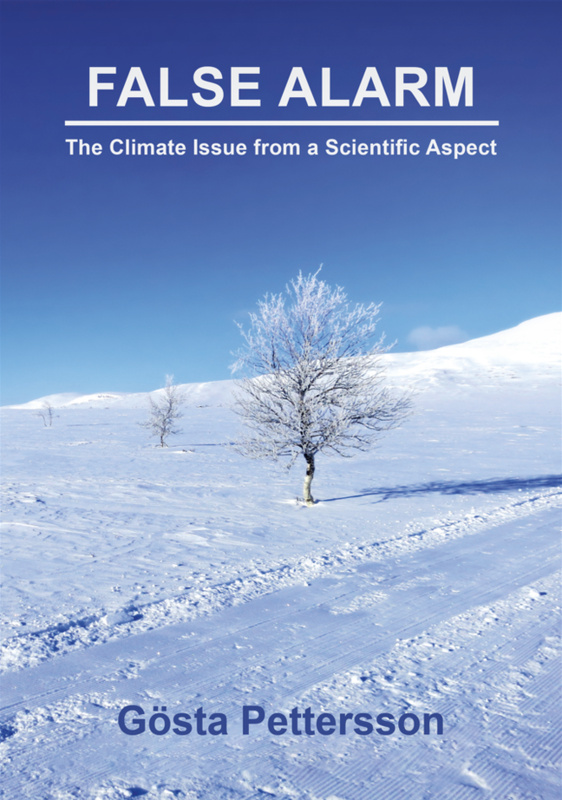In recent years, media has been feeding us almost daily with the alarming message of an ongoing global climate change which might have catastrophic consequences.
We have heard that an overwhelming majority of the world’s climate researchers agree on what this climate change is caused by, and what it will lead to: The Earth is warmed because of our emissions of greenhouse gases in general, and carbon dioxide in particular. Unless we drastically reduce our emissions of carbon dioxide, the world will henceforth be plagued by all kinds of natural disasters.
We are also told that natural mechanisms that used to dominate climate do not give much, if any influence on weather or climate anymore. Instead, it is us, humans that cause weather and climate changes now. We are not only responsible for extreme weather events like hurricanes, droughts, and floods but also for melting glaciers and ice sheets and Arctic sea ice at an alarmingly accelerated rate. We are in the process of raising sea levels and we are endangering the long-term survival of thousands of animal species. And all these negative impacts from humans, through anthropogenic CO2 emissions have been realized since 1950. This is all supposed to be settled science.
But it has also surfaced that the hypothesis about a catastrophic human-induced global warming has met strong criticism on scientific bases. Many scientists strongly disagree to the conclusions that humans have taken over the control of climate, as we have been told by UN IPCC. Sceptical objections have been presented not only by climatologists themselves, but also by geologists, chemists, physicists, astronomers, statisticians, and mathematicians.
There is also an enormous volume of new scientific papers available that support a sceptical position on anthropogenic climate change alarm. In 2016 alone, 500 peer-reviewed scientific papers published in scholarly journals seriously question just how settled the “consensus” science really is.
Therefore, it is obvious that many scientists do not at all agree that natural factors have only an extremely limited influence on climate. And this puts the light on how reliable the carbon dioxide hypothesis really is. Much of what we have been told to believe is simply not true.
Gösta Pettersson writes that his own interest for this scientific controversy was awakened for real when he realized that some of the presented criticism was justified in research areas where he, himself, had specialized in his work as a researcher. At that point, he decided to form his own opinion about the climate issue, and eventually also to present what he has concluded in the form of a book. He has spent years in writing this book.
The main objective has been to provide whomever wishes to get a grasp on the climate issue with basic information about the climatic observations, what the controversies are all about, as well as how Gösta Pettersson, as a researcher, has been reasoning in his attempts to find a way through the controversies.
In the beginning of Göstas writing there was a question mark, after the title False Alarm but Gösta removed this, when later on during his journey he became convinced that the current state of the scientific knowledge does not provide any reason to fear that our emissions of greenhouse gases are about to induce any catastrophic climate change.
Most of all, says Gösta, the title of the book aims to address the falseness with which climate alarmists have presented their message to policy makers and to people in general. Gösta give several examples of what must be regarded as misleading alarmist climate information, and in many cases, as intentionally misleading, with a political agenda.
Gösta likes to say “One should not cry “Wolf!”, every time one spots a four-legged animal”.One should definitely not cry “Wolf!”, when one does not see any animals at all, but just wants to scare people from going outside their houses.
Gösta states that False Alarm does not provide many definite answers to the questions that it handles. He rather emphasises that you will learn about the various answer alternatives. However, I am sure it will help anyone, who is seeking more in-depth knowledge about the climate issue. The book will provide useful facts for all those who are fed up with the political views on the climate science and who are eager to better understand the scientific aspects.
The book was originally written in Swedish, but it is recently translated into English by Karolina Hagegård. Karolina holds a Master of Science in Bioengineering from Chalmers University of Technology. Today she works a biogas Engineer for Swenya Biogas in Kenya.

